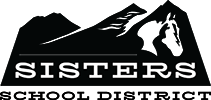Middle School / Classes / Elective Courses
Forecasting Process
Forecasting is choosing electives for next school year. Electives are graded, academic choice classes that help enrich student’s learning and explore their interests and strengths. The grading scale is letter grade (A, B, C, D, F) as with other core academic classes. The electives that are offered in the schedule are based on the forecasting requests from the spring of the previous school year. To maximize the chances of all students getting into their primary forecast selections, we rotate electives every trimester. Therefore, your student will choose 6 primary electives they wish to take, and 4 alternate elective options. Alternative elective options are alternate classes students would be willing to take if their primary elective is not available due to a scheduling conflict or not offered.
Please review the elective course descriptions on the following pages with your student. You will choose 6 primary elective classes and 4 alternate elective classes.
You will submit your forecasting selections through StudentVue.
Schedule Change Policy and Procedure
The SMS schedule is built based on student forecasting/requests in the spring. These requests dictate which classes we offer and when. It is a priority for us that all students have their primary choice classes during one of the three trimesters during the school year.
However, it is possible your students’ primary choice was not forecasted for enough by students and therefore may not be offered. Thus, if primary choice requests cannot be made due to scheduling conflicts, then students will be placed in the alternative classes they selected during forecasting. Only changes based on academic placement or a mistake will be made.
Other Course Considerations:
Some courses have a class size capacity due to classroom capacity and/or supply/material limitations.
Some courses are yearlong (Leadership, ECoS, Band, and Choir). Students who forecast for a yearlong course are expected to stay in that course for the year.
Information
Curriculum
Academic Enrichment
AVID Study Skills 7
Students will learn AVID study skill strategies for improving academic skills that enhance student learning. Such skills include note-taking, time-management, organization strategies, self-advocacy, etc. While there will be time to work on assignments from core classes, there will also be assignments/activities that have students practice and learn new skills for academic success.
AVID Study Skills 8
Students will learn AVID study skill strategies for improving academic skills that enhance student learning. Such skills include note-taking, time-management, organization strategies, self-advocacy, etc. While there will be time to work on assignments from core classes, there will also be assignments/activities that have students practice and learn new skills for academic success.
Math Enrichment
In math enrichment, students work on math individually, in small groups, and as a whole-group class. This can include working on assignments for a current math class, reviewing or reteaching what’s currently happening in math class, or working on more fundamental skills from earlier grade levels to help support math class. Students do not forecast for Math Enrichment. Instead, data from the iReady Diagnostic, classroom progress, student learning profiles and ongoing curriculum-based measurements are used to determine who attends these classes. Students are monitored closely to track growth and progress. Students are evaluated each trimester to determine if they stay in the intervention class or are exited.
Reading Enrichment
In reading enrichment, the curriculum is designed to meet the students at their ability level. Teachers reteach concepts that are presented in the grade level courses. These strategies are key in developing confidence, independence and ultimately gaining academic success.
Students do not forecast for Reading Enrichment. Instead, data from the iReady Diagnostic, classroom progress, student learning profiles and ongoing curriculum-based measurements are used to determine who attends these classes. Students are monitored closely to track
growth and progress. Students are evaluated each trimester to determine if they stay in the intervention class or are exited.
Applied Science
ECoS - 8th Grade Only
Experiential adventure-learning class that is your 8th grade Science credit and also counts as an elective. ECoS is a yearlong, two-hour block class during the last two periods of the day, and includes several weekend/evening trips to locations all around Oregon: camping, hiking, backpacking, caving, x-country skiing, snowshoeing, surfing, rock climbing and more! This class is for motivated students who enjoy learning science and new skills in diverse environments and stepping out of their comfort zones with a community of learners. Application process and teacher approval is required.
Contact Mr. Geisen or Mr. Jensen for more information: [email protected] or [email protected]
Application due: March 30, 2023

